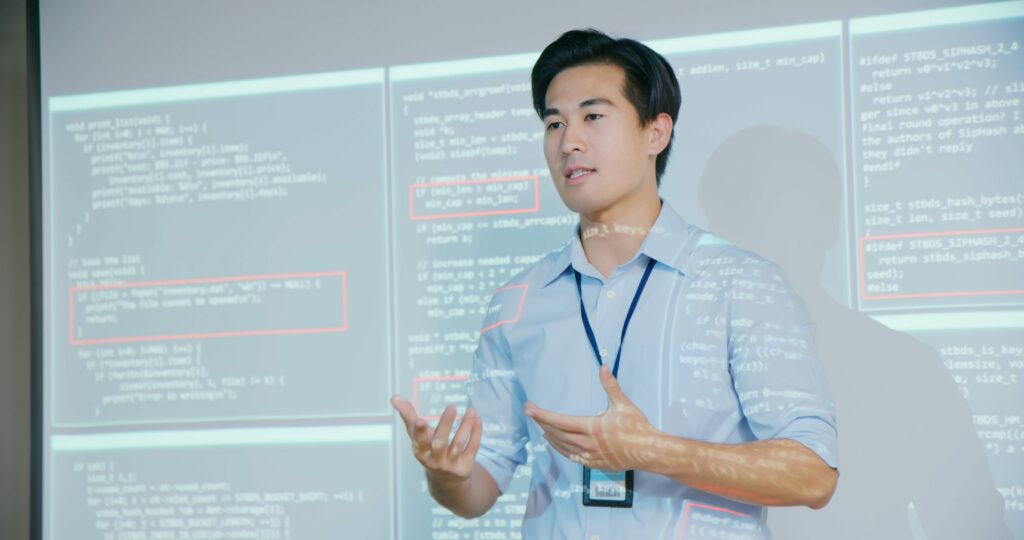Insights
Cybersecurity: 8 proven ways to level up your security management operations
This blog is co-authored by João Labre – Director of Modern Work and Security, and Antonio Briceño, Country Manager for Costa Rica.
You’re navigating the ever-changing threat landscape, and you know that building the muscle for robust security operations is paramount. Protection from a technology or SaaS solution only takes you so far. You need to develop a culture of security awareness to seriously understand and honestly assess security awareness at all levels.
We share our tried and tested strategies to enhance your organization’s security management posture. As cybercrime becomes more prevalent, adopting a reactive approach could not only divert resources away from your core objectives – it could also inflict irreparable damage to your credibility.
1. Cybersecurity is an Organizational Priority
Effective defense strategies against cyberattacks begin with acknowledging that security is not just an IT concern. CEOs and senior executives must lead by example – modeling that security is everyone’s responsibility and aligning strategies and resources accordingly. Budget allocation is a crucial aspect, and cybersecurity should be seen as an investment rather than an expense. Allocate a budget that allows your organization to acquire the necessary resources to protect itself effectively. Make sure that the C-Suite understands the importance of this investment in securing your organization’s future.
2. Comprehensive Security Management
The demand for cybersecurity industry workers continues to fall short of the supply of skilled practitioners – with 3.4 million unfilled job vacancies. The chances are that your in-house security team is stretched thin managing your current cybersecurity operation. Security management covers a broad range of activities, from continuous education, risk assessment, and compliance to incident response and monitoring. To fortify your security management operations, adopt a holistic approach that covers all aspects of security. Work with an experienced, trusted partner such as Beyondsoft to develop a robust framework that integrates all aspects of your approach, to ensure that no vulnerability is left unchecked.
3. Time to Adapt to Remote Work Realities
Remote work has introduced new attack vectors for organizations. With approximately 40% of employees now working a hybrid model or full-time remotely, security management operations must adapt to this new reality. In parallel hackers are leveraging collaboration tools beyond email — including Slack and WhatsApp — to carry out attacks. Provide your remote workforce with the necessary tools and training to maintain security standards, scrutinize suspicious communications, and remain vigilant regardless of their location. Security operations must extend beyond the office to ensure comprehensive protection.
4. Partner for Managed Detection and Response
When dealing with prevailing and emerging cyberattack vectors, seeking expert guidance is essential. Teams benefit greatly from the insights of specialists who can tailor strategies to your organization’s unique needs. A partner with a global cybersecurity track record of putting their managed detection and response provision to the test is invaluable as you navigate complex, local regulatory requirements. Choose an ISO 27001 certified partner that has maintained their credential over a sustained period to protect against the most common – and emerging attack vectors. Similarly, security specializations from Microsoft Azure require business case traction – another solid indicator of a partner that specializes in cybersecurity operations and management.
5. Culture and Training
Building a human-centric culture of security awareness is the most important defense against cyberattacks. Every member of your organization must understand their role in preventing and thwarting cybercrime. Your employees need to understand what to scrutinize so that they can detect phishing scams in their emails and WhatsApp messages, and they need to know how and when to store and share sensitive data. Training sessions need to be refreshed and conducted quarterly to ensure everybody is educated on the ever-changing threat landscape.
6. AI: A Double-Edged Sword
It’s no surprise that Artificial Intelligence (AI) is used more frequently by cyber criminals to design, personalize, and distribute malware. Defenders need to be as adept as attackers in leveraging the latest tech. The good news is that AI can assist defenders with innovative automation that facilitates and expedites incident response. Note though, that there is no substitute for human decision-making. The most effective approach to applying AI to your security management is to build a ‘Fusion Team’ comprised of developers, users, and business users to take a multidisciplinary approach to applying AI to your security operations and threat management.
7. Monitoring and Response
Vigilant security management involves continuous scrutiny of your existing security approach and tracking your data governance. Given that cyber threats evolve and shift, you need to revisit your security management plan and test your incident response plan regularly to maintain its effectiveness. Don’t assume that ‘no news is good news’ – it takes a concerted effort to stay ahead of the bad news. It’s no longer ‘if’ there’s an attack, it’s ‘when’ – and you have to be prepared with monitoring and proactive mitigation practices. Exercise sapiency – in other words, be educated and self-aware of the gaps in your security management plan, and ensure you’re up to date on the trends, methods, and technologies both in cybercrime and cybersecurity.
8. Shared Responsibility
Security management is akin to a change management exercise: how do you keep vigilance top of mind? Remember that your cloud providers know how to handle security better than an in-house team – they face attacks of every type every day. Cyber security is a joint effort, so understand the cloud services you’re buying, where you’re responsible, and fine-tune your security services for your needs. Work with your security operations partner to define roles and responsibilities.
Tap into our expertise to strengthen your organization’s security posture. We have helped many customers across all verticals to fortify their security operations. Contact us today to see how we can do the same for you.

Why BEYONDSOFT
私たちのオンショア、ニアショア、オフショアのデリバリーサービスは、24時間365日、お客様のビジネスをサポートします。日本の大手SI企業に対し数十年にわたりサービスを提供しています。1999年以来、日本で25年の経験を持っています。日本には500-600人のスタッフがいます。長年にわたる成功事例は、私たちがお客様の投資対効果においてどれほど重要であるかを証明しています。シンガポールは私たちのグローバル本部であり、世界各地に14の地域オフィスを持っています。

30年以上にわたる強力なITコンサルティングサービスの経験

COBOL, C, Java, Pythonなど幅広い開発言語や開発環境に対応

SAPにおけるABAP, BTP, Fioriなど幅広く対応

40以上のグローバルデリバリーネットワークを持つ4大陸をカバー

CMMI 5、ISO 9001、ISO 14001、ISO 20000、ISO 27001、ISO 22301、ISO 45001、TMMi5の認証

マイクロソフトの専門家であるAzure MSP
Beyondsoftと共にビジネスの潜在力を最大限に引き出しましょう。私たちがどのようにイノベーションを推進し、効率を向上させ、ビジネスの成長を実現するのか、ぜひご相談ください。
